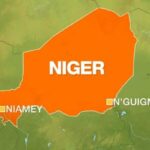Last week coup d’état in Niger has not only shaken the nation but also raised concerns about the future of sustainable development in the country and its implications for other French colonies in Africa. As the dust settles, experts are analysing the historical context of French colonial legacies and proposing solutions to ensure a more sustainable path forward.
The overthrow of the democratically elected government of President Bazoum highlights the fragility of political systems in former French colonies, where post-independence stability has often been elusive. Similar patterns have emerged in other African nations that were once under French rule. Economic disparities, political turmoil, and institutional weaknesses have plagued many of these countries, hindering their progress toward sustainable development.
In the past, other French colonies in Africa, such as Mali, Ivory Coast, and Burkina Faso, have faced challenges in establishing sustainable development strategies. Decades of colonial exploitation have left a lasting impact on these nations, making it difficult for them to break free from a cycle of poverty, corruption, and political instability.
The root causes of this phenomenon can be traced back to the colonial era, during which French interests often prioritised resource extraction and economic exploitation over the long-term development of local communities. Natural resources were exploited without sufficient investment in local infrastructure, education, and healthcare. This left the newly independent countries ill-equipped to handle the complexities of governance and sustainable development.
At caucus meeting, Tinubu charges APC leaders on financial discipline
Emir of Gombe’s uncle, Yariman Gombe, buried amidst tears
Additionally, the post-independence influence of external actors, including neocolonial forces, further complicated matters. The involvement of foreign powers in the affairs of these nations has at times perpetuated instability, undermining democratic processes and thwarting efforts to pursue sustainable development.
The coup in Niger serves as a stark reminder of the deep-rooted challenges that former French colonies in Africa face in achieving sustainable development. By understanding the historical context of colonial legacies and taking proactive measures to empower local communities, these nations can pave the way for a more stable, equitable, and sustainable future. Regional cooperation and engagement with the international community are also essential in supporting these efforts. Only through collective action can we hope to break the cycle of instability and pave the way for a brighter future for all African nations.
Zanna Samaila, is a postgraduate student at Yobe State University, Damaturu

 Join Daily Trust WhatsApp Community For Quick Access To News and Happenings Around You.
Join Daily Trust WhatsApp Community For Quick Access To News and Happenings Around You.

